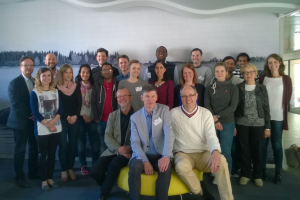Nils Christian Hoffmann Visited PhD Seminar on Cross-Cultural Research Methodology in Finland
With intensifying globalization over the past decades, there is an increasing interest in cross-cultural, cross-national and cross-disciplinary management research. Methods and methodology for such comparative studies require special knowledge and analytical skills. Researchers involved need to be familiar with these research methods and even need to be able to create novel methods and techniques on their own to carry out valid, reliable, and trustworthy cross-cultural research analyses. The empirical design is expected to be even more complicated, when transitional and developing economies are included for analysis.
To provide junior researchers with the key knowledge and skills of the up-to-date methodologies applied in cross-cultural management research, the KATAJA (The Finnish Doctoral Program in Business Studies), the FIGSIB (The Finnish Graduate School of International Business) and the EAISM (European Institute for Advanced Studies in Management) organized a corresponding doctoral seminar which took place from May 29th to June 2nd at the University of Vaasa in Finland.
KCG PhD Researcher Nils Christian Hoffmann joined the seminar and presented his KCG research project “Cross-cultural differences in the perception of corporate social responsibility and consumer social responsibility along global supply chains”. He received valuable comments and suggestions from the instructors of the seminar, Professor Hartmut H. Holzmüller (TU Dortmund University, Chair of Marketing), Professor Edwin Nijssen (Eindhoven University of Technology, Chair of Marketing) , Professor Thomas Salzberger (WU Vienna, Department of Statistics and Mathematics) and the seminar participants. In addition to own presentations, various relevant and up-to-date research methods, and their strengths and weaknesses were introduced to the seminar participants in a broad spectrum of different learning formats. The seminar provided not only an opportunity to junior researchers to gain more insights into related research methods but also helped raise researchers’ awareness of critical challenges when conducting cross-cultural research.




 KCG Projects
KCG Projects


